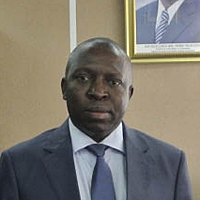
Jean Ciza, Governor of Burundi’s Central Bank, discusses the bank’s goals for the future.
Jean Ciza: The Central Bank issues currency, supervises Burundi’s commercial banks, promotes a sustainable financial sector through providing supervision and regulation, supervises microfinance activities, serves as Burundi’s monetary authority concerning monetary policy, and promotes price stability.
European Times: What are some of the Central Bank’s recent accomplishments?
Jean Ciza: The Central Bank recently created two new instruments to strengthen the financial sector. One is an interbank market for banks needing extra liquidity so that they can provide more project financing, and the other is to provide financing for the development of Burundi’s coffee industry. The Central Bank participated in the government’s creation of a financial-sector development strategy, and we are helping to modernise payment systems. Burundi’s banking sector in general is currently undergoing extensive modernisation, including computerisation of services. We are now revising regulations concerning foreign-currency transfers in order to streamline the process, and we participated in the revision of the Banking Act of 2003 to adapt it to current realities.
European Times: What are your main goals for the Central Bank?
Jean Ciza: Through the current modernisation programme we aim to enhance connections between the Central Bank and Burundi’s commercial banks as well as further integrate Burundi’s banking sector into that of the East African Community as a whole, to prepare Burundi for EAC monetary union and an EAC Central Bank by 2022. Another goal is to provide banking services to more people in Burundi. We also plan to increase our supervision to further strengthen the banking sector. We are currently upgrading the Central Bank’s human resources and we are looking for software engineers to help us modernise our payment systems. We are working with many international institutions concerning our capacity-building and human-resources development, including the World Bank, the IMF, the National Bank of Belgium and the Bank of France.
European Times: What do foreign financial-sector enterprises need to do to operate in Burundi?
Jean Ciza: The Central Bank licenses all entries to the banking sector and we have set conditions for licensing that are designed to enhance banking stability. We are ready to help any new investors and we want them to know that Burundi has made great progress in upgrading the business environment. The public and private sectors here are working together to achieve economic progress, and we welcome private investors.




